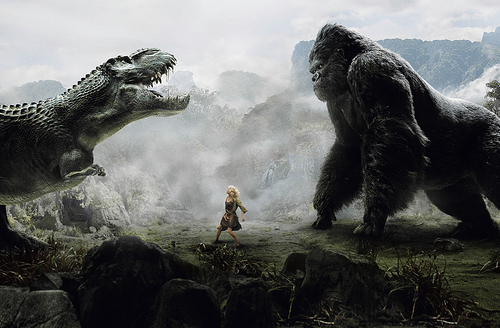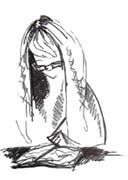Well, I'll hang my head sheepishly and admit that I've failed you. Long gaps between entires, and then when I do post (rarely), the entries are quick and beefed-up with photos--nothing of the rambling, several screens-long posts I boasted of two months ago...
Alas.
I can at least claim that
NaNoWriMo ate up my November--as well as a significant portion of my writerly brain, and nearly all of my annual word count alotment (allotment? Wow, NaNo ate up my spelling brain, too)--and then there were, um, Christmas-y family things happening in December, so I was left, essentially without those three, crucial, blogging ingredients: inspiration, motivation and time.
But enough excuses. Really. Now I'll say some funny things.
Like this: pumpkin. Pumpkin isn't so much a funny
thing as it is a funny
word, but I like it all the same. Pumpkin. And "bunny". That's a good one, too.
Speaking of bunnies, on New Year's Eve, Mitch and I bought our first pets as semi-competent adults, and right now they're running circles 'round my computer chair, wrestling each other with their little needle-sharp kitten claws and making cute, angry cooing noises. In case you missed the last entry (
I think I might start purring), we got kittens. And they're precious. And funny. It's a non-stop cuteness channel at our house these days as Gunner and Sparrow run amok in our apartment, pouncing on play mice, each other, and our toes, fingers, legs, faces and backs.
Like I said, precious.
In other news, I saw
Serenity finally, and
That One Guy was right--I was so, so wrong to have waited this long.
Serenity is amazing. Stop reading this right now and go see it. Unless you want to watch the series,
Firefly, first (which I would recommend)--then you can go do that.
Also, for an amusing anecdote, I'll share this: last night, I hopped on the bus after work, and the driver was sitting in his seat, looking all cozy and reading while he waited at my stop (back story: I ride a bus that is significantly influenced by whether or not
Western is in session. When it's not, I often have the bus all to myself, and, because he only stops once or so per route when there aren't any students, the driver generally waits at my stop for ten minutes before take off to get back on schedule).
I sat down, took my book out and settled in to read for a few minutes, when the driver stood up and did a quick sweep of the bus to check for trash. Noticing the cover of my book (
A People's History of the Unites States, by Howard Zinn), he chuckled to himself, grabbed his book and held it up so I could see, then asked, "So? How you do like it?"
Because, ha! We were reading the same book! Only two people on the whole bus, and we were reading the same book! Seriously. Weird.
 You know what? I had this really awesome review written up about THE INNOCENT--I mean, awesome, probably the best review I've written in a long while--and I went on and on about how McEwan has these details and these characters and these sneaky little plot twists, and I was so proud of my review, I really was. I was just fine-tuning it, and then Safari "unexpectedly quit."
You know what? I had this really awesome review written up about THE INNOCENT--I mean, awesome, probably the best review I've written in a long while--and I went on and on about how McEwan has these details and these characters and these sneaky little plot twists, and I was so proud of my review, I really was. I was just fine-tuning it, and then Safari "unexpectedly quit." I know, I know, I go on about how I don't like murder-mystery novels, but then I post two reviews of murder-mystery novels pretty much back to back. I'm silly, yes, but allow me to clarify: I don't generally like mysteries, I stand by that, but I do like Dashiell Hammett. I mean, these aren't drugstore paperbacks with flimsy plots featuring a homicidal killer on the loose, creeping closer and closer to the main character, who is always "next in line"--these are old-school detective novels, with the manliest of manly men, Samuel Spade, Private Eye, intimidating his way through the police department, whole passels of bad guys, and, oh yes, the ladies.
I know, I know, I go on about how I don't like murder-mystery novels, but then I post two reviews of murder-mystery novels pretty much back to back. I'm silly, yes, but allow me to clarify: I don't generally like mysteries, I stand by that, but I do like Dashiell Hammett. I mean, these aren't drugstore paperbacks with flimsy plots featuring a homicidal killer on the loose, creeping closer and closer to the main character, who is always "next in line"--these are old-school detective novels, with the manliest of manly men, Samuel Spade, Private Eye, intimidating his way through the police department, whole passels of bad guys, and, oh yes, the ladies. Alright, I'm reviewing yet another book that I read as a kid and have recently reread: Mark Twain's THE ADVENTURES OF TOM SAWYER. In fact, the more I think about it, the more I become convinced that the best books (and the ones that I reread, again and again) are the ones I loved as a kid, but that I love even more now, books that are chock full of adult themes, but not so at the expense of the plot: the themes are skillfully maneuvered to the background, leaving the pure fun of the story intact and pretty nearly uninterrupted. TOM SAWYER is definately one of these.
Alright, I'm reviewing yet another book that I read as a kid and have recently reread: Mark Twain's THE ADVENTURES OF TOM SAWYER. In fact, the more I think about it, the more I become convinced that the best books (and the ones that I reread, again and again) are the ones I loved as a kid, but that I love even more now, books that are chock full of adult themes, but not so at the expense of the plot: the themes are skillfully maneuvered to the background, leaving the pure fun of the story intact and pretty nearly uninterrupted. TOM SAWYER is definately one of these. Ordinarily, I'm not big on murder-mysteries, but LOST SOULS is a bit different. Though the book doesn't vary much on the mysterious plot (small girl found dead on Halloween--small Midwestern town wonders Who? and Why?), the murder is pretty much solved by the second chapter, leaving Collins with plenty of time to examine the downfall of a failing town and then draw certain parallels between this town and the fall of industry in America--which is interesting, but it's also an awful lot like what he did in his last two books, The Resurrectionists and The Keepers of Truth.
Ordinarily, I'm not big on murder-mysteries, but LOST SOULS is a bit different. Though the book doesn't vary much on the mysterious plot (small girl found dead on Halloween--small Midwestern town wonders Who? and Why?), the murder is pretty much solved by the second chapter, leaving Collins with plenty of time to examine the downfall of a failing town and then draw certain parallels between this town and the fall of industry in America--which is interesting, but it's also an awful lot like what he did in his last two books, The Resurrectionists and The Keepers of Truth. Since we're on the subject of children's books, I present you with Joan Aiken's THE WOLVES OF WILLOUGHBY CHASE (that looks extra dramatic in all caps, no?). This is a fun "orphaned children held captive by evil, conniving governess" story, with some lovely scenes on frozen rivers and in train compartments thrown in. I must say that I loved the wolves most, though I did fall a bit for Simon.
Since we're on the subject of children's books, I present you with Joan Aiken's THE WOLVES OF WILLOUGHBY CHASE (that looks extra dramatic in all caps, no?). This is a fun "orphaned children held captive by evil, conniving governess" story, with some lovely scenes on frozen rivers and in train compartments thrown in. I must say that I loved the wolves most, though I did fall a bit for Simon. I'm on such a fantasy binge right now, but I can't help it--I need evil empires, odd creatures, magical swords, sacred quests and archery (lots and lots of archery) to be a truly happy girl. To keep up my fantastic spirits, I present you with a review of DUNE: another one of those books that compells all manner of people to stop by your table at the Bagelry and point out what a great book it is that you're reading, and proceed from there to list all the fantasy books that you absolutely have to read before you die.
I'm on such a fantasy binge right now, but I can't help it--I need evil empires, odd creatures, magical swords, sacred quests and archery (lots and lots of archery) to be a truly happy girl. To keep up my fantastic spirits, I present you with a review of DUNE: another one of those books that compells all manner of people to stop by your table at the Bagelry and point out what a great book it is that you're reading, and proceed from there to list all the fantasy books that you absolutely have to read before you die. I sort of fell out of the habit of memoirs after analyzing the joy right out of a few good ones in college, but THE LIAR'S CLUB was a book club assignment (and it was a whole heck of a lot better than
I sort of fell out of the habit of memoirs after analyzing the joy right out of a few good ones in college, but THE LIAR'S CLUB was a book club assignment (and it was a whole heck of a lot better than 

